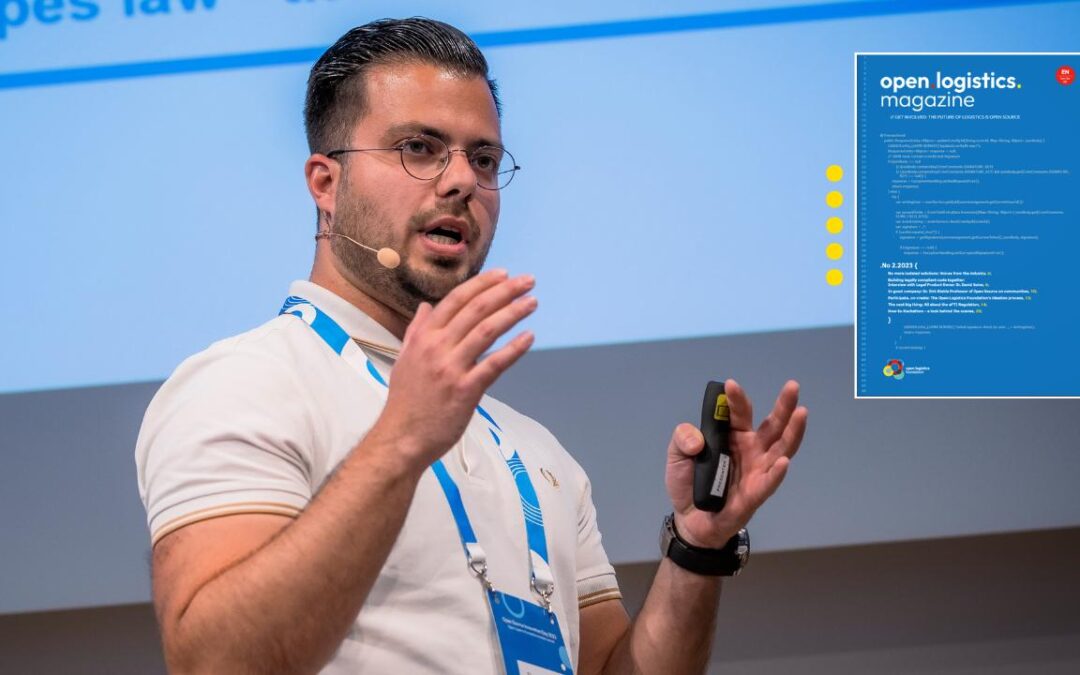
4 December 2023 | Stories
No one would think of planning and building houses without considering the applicable building regulations. In software development, however, legal regulations are often ”neglected“. The Hamburg lawyer and digitalisation expert Dr. David Saive, LL.M., wants to change
that – a conversation about the necessity of interdisciplinary cooperation between law and technology.
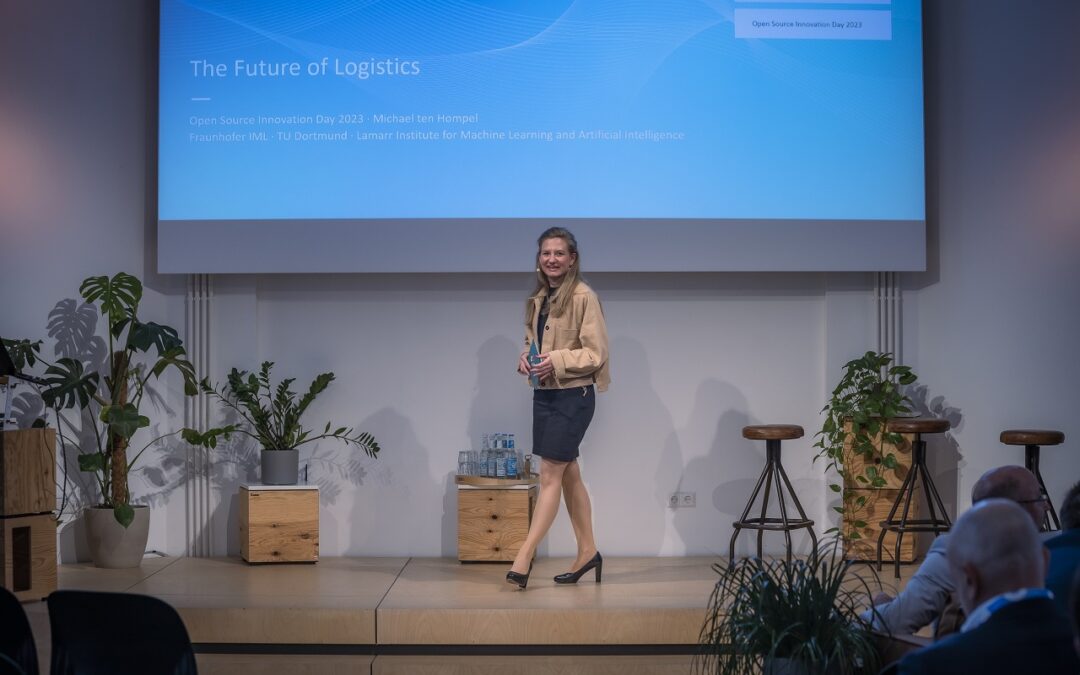
27 November 2023 | Stories
This year, we’ve attended multiple events, engaging in discussions about open source for logistics and supply chain management. Frequently, we encountered inquiries surrounding the nature of our work, the purpose behind our initiative, and the process of our operations. These queries ranged from understanding the core mission of the Open Logistics Foundation to inquiries about how we foster collaboration among industry competitors and the specific role played by the Head Office. Amidst these queries, some misconceptions about the Open Logistics Foundation have also surfaced. Addressing these questions and dispelling misconceptions, our interviewee, Carina Tüllmann, the COO of the Open Logistics Foundation, is here to provide a comprehensive clarification.
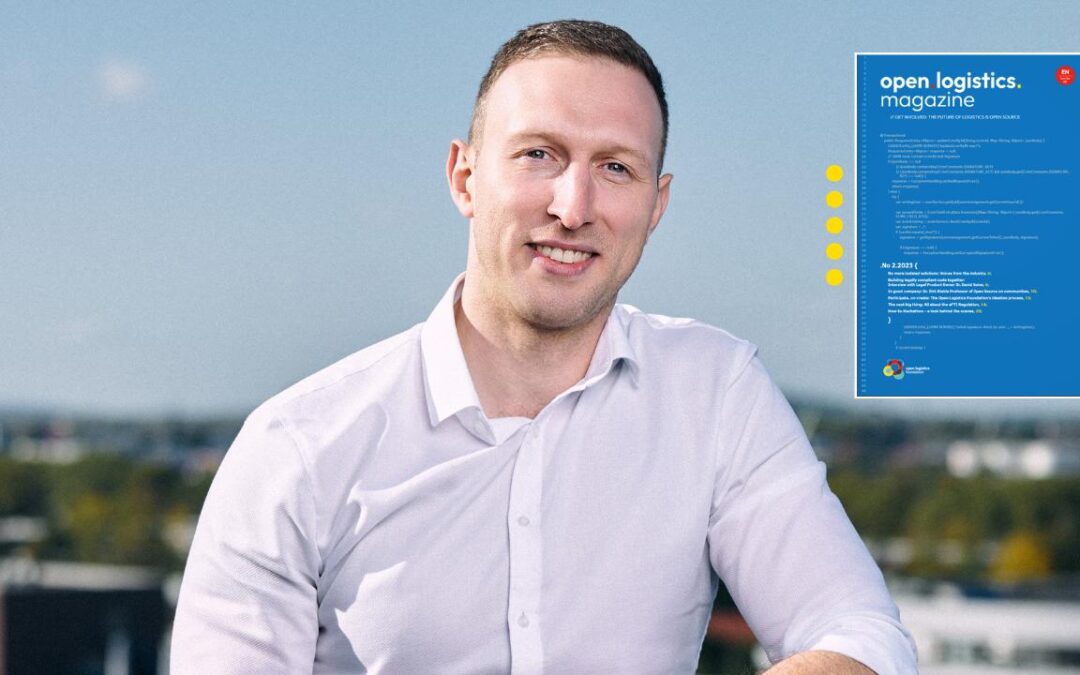
22 November 2023 | Stories
Open Source is one of the drivers of digital innovation in many companies today. Representatives from three member companies of the Open Logistics Foundation explain the
importance of open source for them. Three different companies, three individual open source strategies – but a common vision.
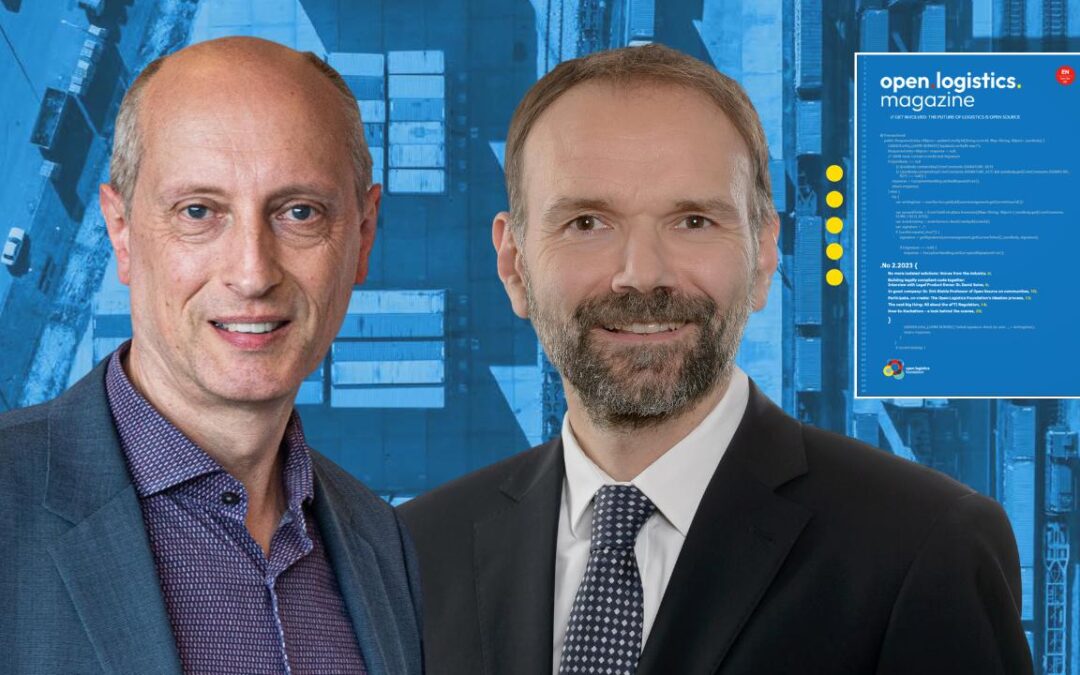
13 November 2023 | Stories
The EU regulation on electronic transport information, or eFTI for short, poses major challenges for logistics companies, but also offers
them opportunities. What the regulation says, why it is also spurring the introduction of the electronic consignment note – and what role open source plays in its implementation.
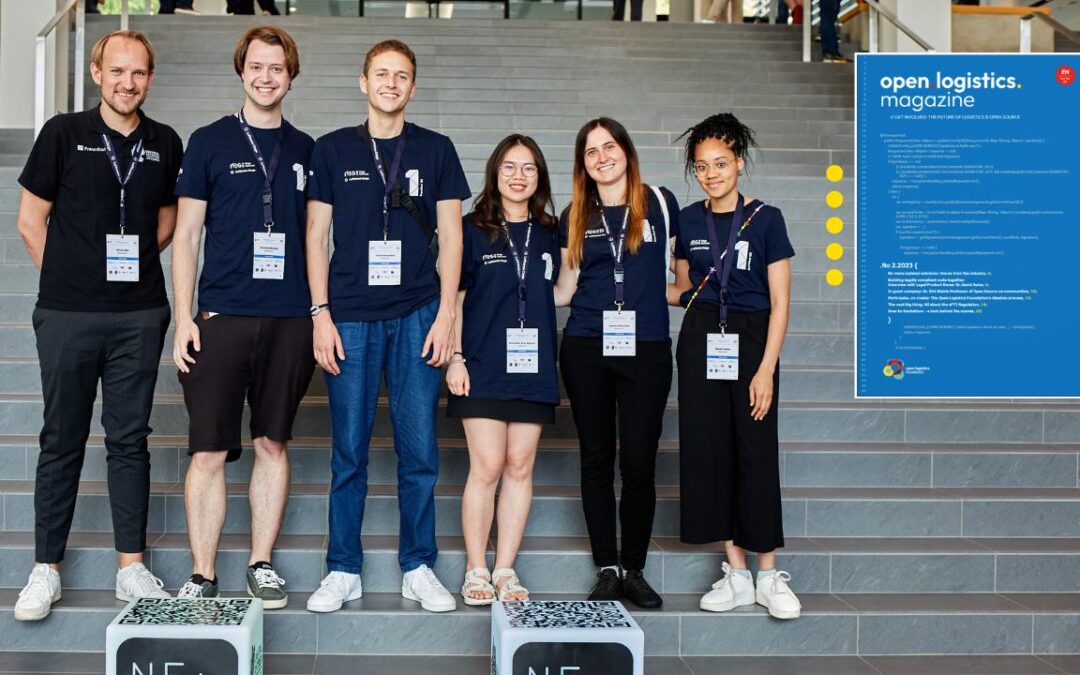
8 November 2023 | Stories
The “IATA ONE Record Hackathon“ is a platform for digital experts who want to develop innovative solutions based on the ONE Record standard for air cargo. Oliver Ditz, research associate at Fraunhofer IML and head of the Working Group Digital Air
Cargo, took part in the seventh edition of the exclusive event in Frankfurt with his NE:ONE Play
team. The countdown is on …
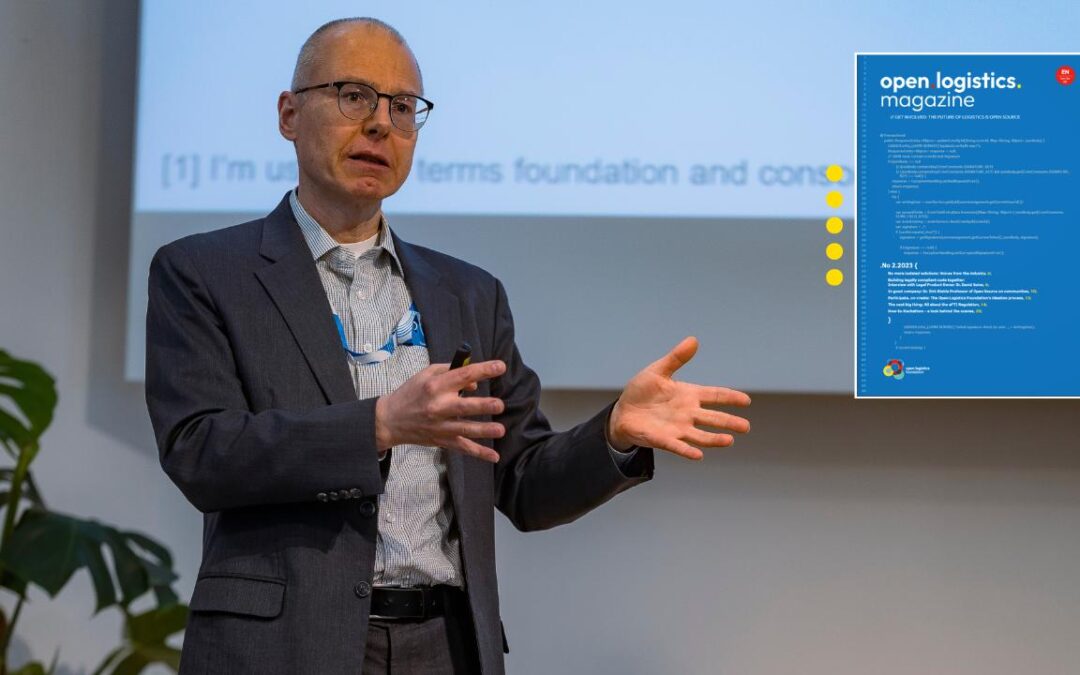
2 November 2023 | Stories
User-led open source communities are an essential driver for the development of commercially relevant open source software. In a guest article for the Open Logistics Magazine, Prof. Dr. Dirk Riehle,
Professor of Computer Science at the Friedrich- Alexander University Erlangen-Nürnberg, explains how they become successful.
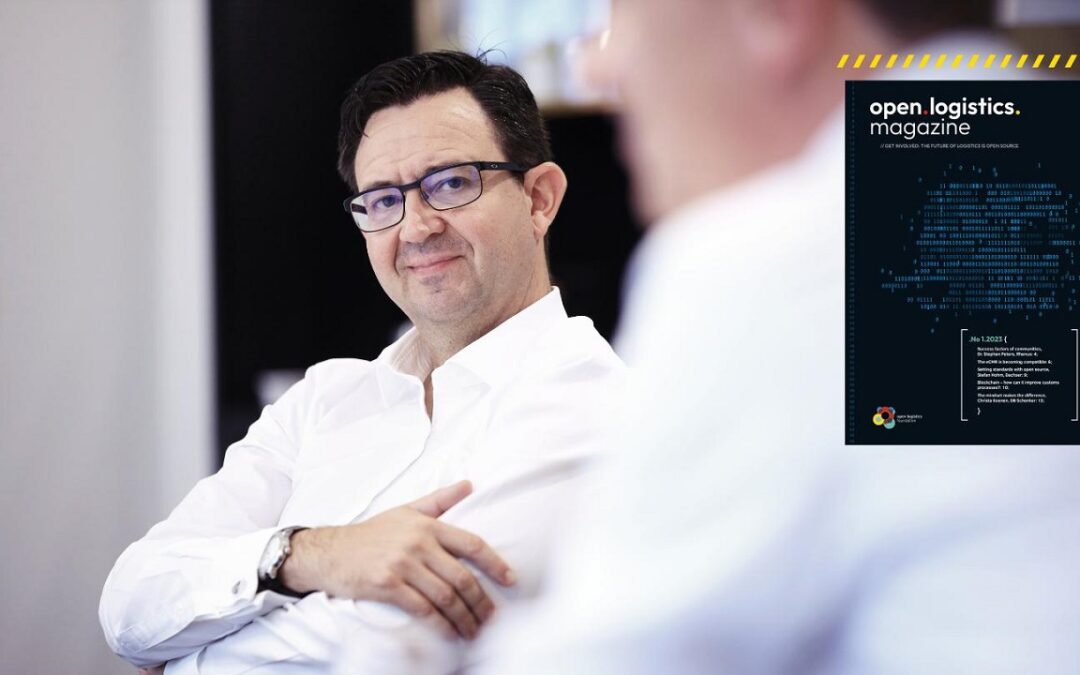
5 September 2023 | Stories
At the international logistics service
provider Dachser, advocating the use of standards has tradition. With this in mind, the company is also involved in the Open Logistics Foundation. As a co-founder of the Foundation and a member of Working Groups and Projects, Dachser is driving forward the digitalisation of logistics – especially with a view to the so-called
commodities.
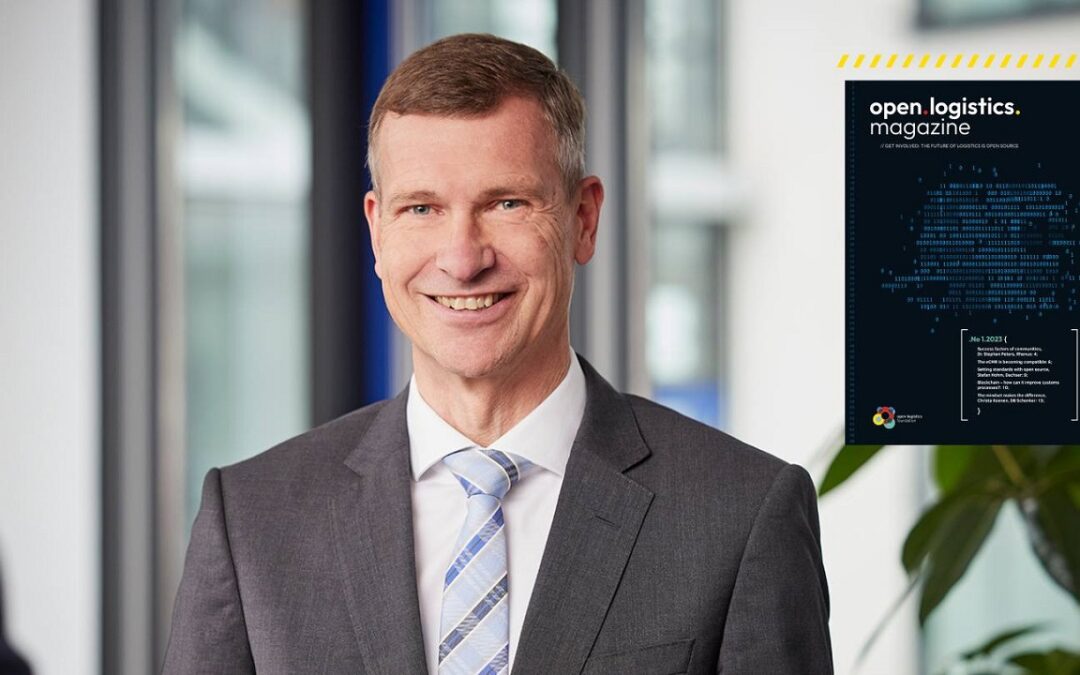
21 August 2023 | Stories
Dear Community, when it comes to top quality, reliable and efficient logistics services, Germany and Europe have been setting high benchmarks for many years. However, the tables turn when
it comes to digitalisation and standardisation of processes. In global comparison, European logistics companies reach at best a moderate position in these two aspects. This is mainly because
over the years, the IT processes have evolved in silo structures. In other words, companies have either independently developed their own digital solutions or rely on standard solutions from individual system providers.
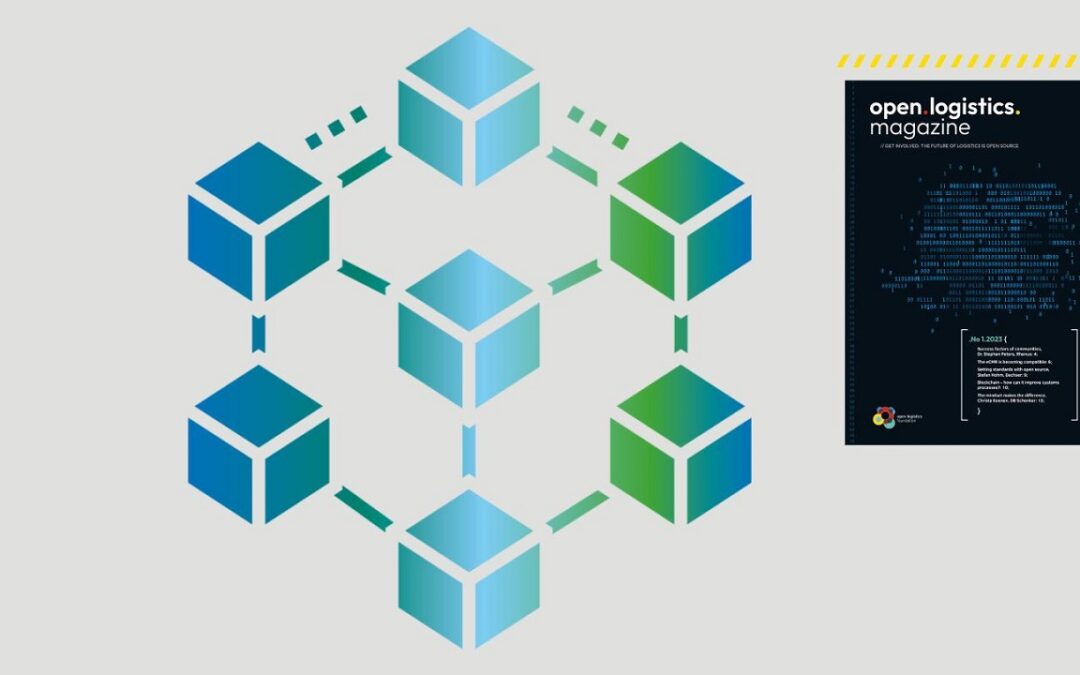
15 August 2023 | Stories
Blockchain offers real potential for authorities
to reduce interventions at borders and overall to
bring more transparency into customs clearance
and logistics processes by further digitalising
the relevant data and documents. Roman Koller,
Research Associate, Fraunhofer IML, and Michael Douglas, Senior Consultant, ALS Customs Services, answer three key questions.









